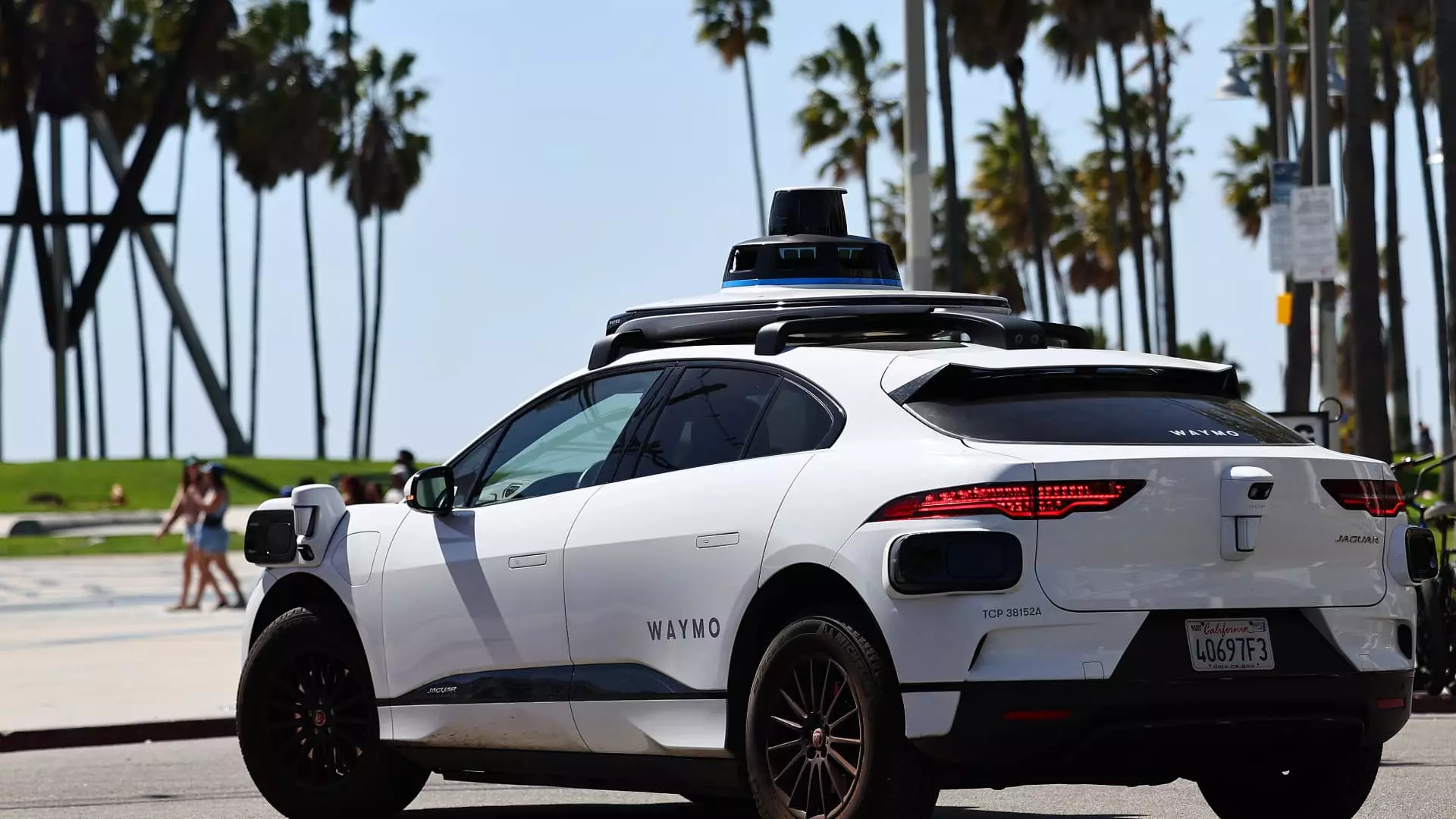The world of autonomous driving is poised for significant transformation, with Waymo leading the charge in this revolutionary automotive evolution. The company recently closed a substantial $5.6 billion funding round, signaling its intent to scale and enhance its existing robotaxi services in major urban areas. With backing from Alphabet, the parent company of Google, along with several prestigious investment firms, Waymo is not just promising to expand its operations; it is laying the groundwork for a future where autonomous vehicles (AVs) become an integral part of daily life.
This funding round has pushed Waymo’s total capital raised to over $11 billion. The financial clout of its latest investors such as Andreessen Horowitz and Fidelity highlights the market’s confidence in self-driving technology and Waymo’s unique position within it. The joint efforts of these entities signify a growing trend where innovation is increasingly sought after in transportation. The partnership with Uber to provide robotaxi services in Austin, Texas, marks a significant strategic milestone, as it places Waymo in direct competition with other notable players like Tesla and GM’s Cruise.
Waymo’s cooperative approach is noteworthy, especially in an industry that is often characterized by fierce rivalry. This is especially visible with the latest move where Waymo’s services will extend beyond its established markets in San Francisco, Los Angeles, and Phoenix, adding Austin and Atlanta into the mix. These cities, chosen for their potential growth and acceptance of new transportation modes, reflect Waymo’s commitment to accessing a wider customer base while continuing to diversify its operational strategies.
Despite successful advancements, the journey for self-driving vehicles is fraught with challenges. Public sentiment remains a significant barrier; a Pew Research Center survey revealed that nearly two-thirds of respondents are hesitant about riding in fully autonomous vehicles. Trust in AV technology is crucial as it directly affects consumer acceptance. Waymo has made strides in instilling some confidence, particularly among demographics concerned about safety—like women and parents—highlighting how this technology might serve specific social needs.
However, even as Waymo successfully conducts over 100,000 weekly trips through its Waymo One app, concerns about safety linger. Incidents involving autonomous vehicles, including software recalls and accidents (albeit without fatalities), underscore a critical reality for the industry: the need for robust safety records that surpass human-operated vehicles. Transparency in addressing technological failures is vital, both for public trust and regulatory acceptance.
The competitive landscape of autonomous driving is rapidly evolving. Tesla CEO Elon Musk recently announced plans for a driverless ride-hailing service, echoing promises he has made for over a decade. Although Tesla’s advancements in partial automation remain impressive, they still rely on human drivers—making Waymo’s fully autonomous services a compelling alternative. Meanwhile, GM-owned Cruise is grappling with operational setbacks, raising questions about the viability of their technology under pressure from safety incidents.
Regulatory bodies are increasingly scrutinizing the reliability and safety of AVs, marking a crucial turning point in how these vehicles will be integrated into the broader transportation ecosystem. Regulatory approval is paramount for widespread adoption, and continued incidents can impede progress. For Waymo and its competitors, demonstrating superior safety performance compared to traditional taxis and trucks is the essential hurdle to overcome.
Waymo’s next-generation robotaxi initiative, utilizing advanced Geely Zeekr vehicles equipped with sophisticated sensor arrays, signifies the company’s commitment to developing cutting-edge technology that can adapt to various environments, including harsher weather conditions. Their ongoing pilot programs in regions like northern California and upstate New York underscore an ambition to extend AV applications beyond temperate zones, setting their sights on international markets.
Waymo stands at the forefront of a transformative era in transportation. With significant financial backing, strategic partnerships, and a commitment to safety, the company is crafting a future where autonomous vehicles are not just a novelty but a necessary utility. As it navigates the complex landscape of consumer perceptions and regulatory standards, Waymo’s determination to improve and evolve reflects the broader challenges that all players in the AV industry must tackle. Looking ahead, the success of this ambitious endeavor will hinge on its ability to consistently deliver safe, reliable, and accessible transportation solutions.

